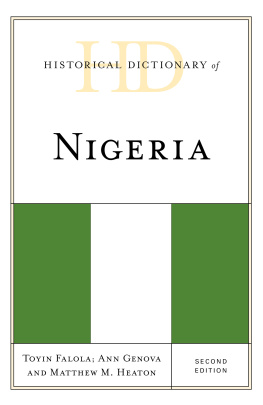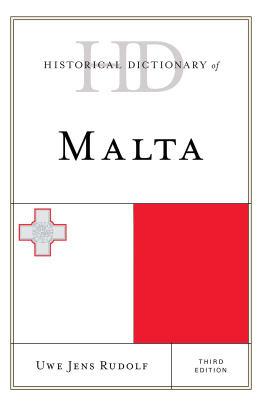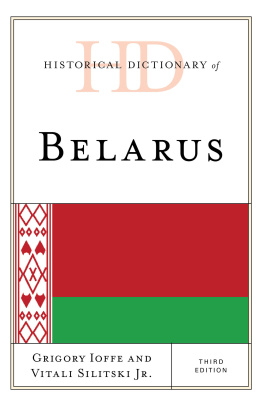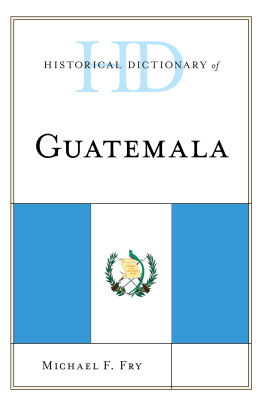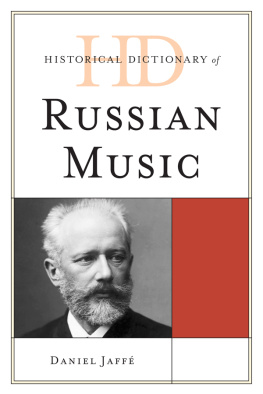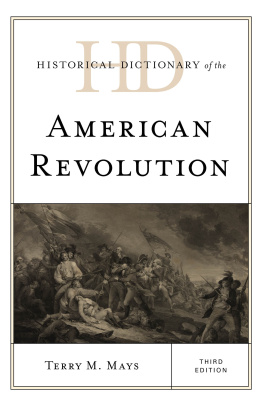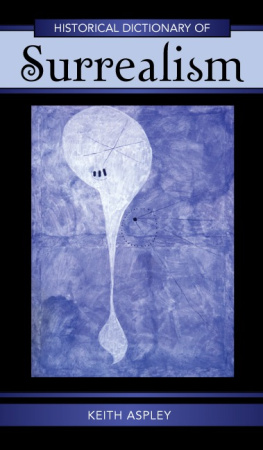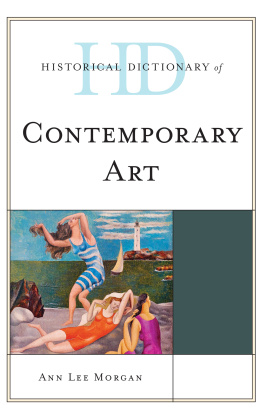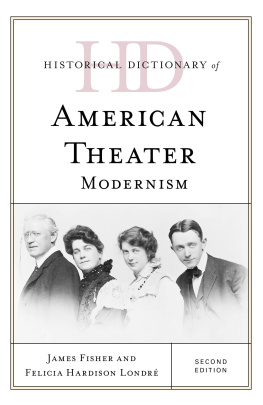Diethe Carol - Historical Dictionary of Nietzscheanism
Here you can read online Diethe Carol - Historical Dictionary of Nietzscheanism full text of the book (entire story) in english for free. Download pdf and epub, get meaning, cover and reviews about this ebook. City: Lanham, year: 2013, publisher: Scarecrow Press Inc., genre: Politics. Description of the work, (preface) as well as reviews are available. Best literature library LitArk.com created for fans of good reading and offers a wide selection of genres:
Romance novel
Science fiction
Adventure
Detective
Science
History
Home and family
Prose
Art
Politics
Computer
Non-fiction
Religion
Business
Children
Humor
Choose a favorite category and find really read worthwhile books. Enjoy immersion in the world of imagination, feel the emotions of the characters or learn something new for yourself, make an fascinating discovery.

- Book:Historical Dictionary of Nietzscheanism
- Author:
- Publisher:Scarecrow Press Inc.
- Genre:
- Year:2013
- City:Lanham
- Rating:5 / 5
- Favourites:Add to favourites
- Your mark:
- 100
- 1
- 2
- 3
- 4
- 5
Historical Dictionary of Nietzscheanism: summary, description and annotation
We offer to read an annotation, description, summary or preface (depends on what the author of the book "Historical Dictionary of Nietzscheanism" wrote himself). If you haven't found the necessary information about the book — write in the comments, we will try to find it.
Historical Dictionary of Nietzscheanism — read online for free the complete book (whole text) full work
Below is the text of the book, divided by pages. System saving the place of the last page read, allows you to conveniently read the book "Historical Dictionary of Nietzscheanism" online for free, without having to search again every time where you left off. Put a bookmark, and you can go to the page where you finished reading at any time.
Font size:
Interval:
Bookmark:
Carol Diethe (B.A, M.A., and Ph.D. London University) was originally a philologist at Middlesex University, but for most of her career she taught undergraduate and graduate courses in the History of Ideas. Her overall remit was with the European Cultural History division, of which she was head. Nietzsches works were very much in demand with the students. Her Ph.D. dissertation on the sexual politics of German Expressionism ignited her interest in Nietzsche, leading her to translate On the Genealogy of Morality (2006) [1994]; she then published a monograph on Nietzsches attitude toward women and their attitudes toward him: Nietzsches Women: Beyond the Whip, 2013 [1996]. Towards Emancipation: German Women Writers of the Nineteenth Century came out in 1998. Her book Nietzsches Sister and the Will to Power was published in 2003. She also translated Filippo Tommaso Marinettis novel Mafarka the Futurist (1998) and is awaiting publication of Nietzsches Late Works of 1888, edited by Alan Schrift.
When Keith Ansell-Pearson founded the Friedrich Nietzsche Society in 1989, Carol Diethe became its first secretary (the society was properly constituted in 1990). FNS conferences are still held annually, but the society itself is peripatetic, mostly because so many academics have moved to the United States, which is far more open to Nietzscheanism than is Britain. Carol Diethe and her husband live in the Highlands of Scotland.
My thanks to the Warburg Institute and the Institute of Classical Studies (both in London) for their kind support, as well as the Nietzsche-Gesellschaft in Naumburg, the Fotothek Klassik Stiftung in Weimar, and the de Gruyter staff in Berlin.
Full details of the translations of Nietzsches works used in this volume are given in the first section of the bibliography. Each major work by Nietzsche has an entry in the dictionary under the English title. The following abbreviations will be used when quoting from Nietzsches works:
| A-C | The Anti-Christ |
| BGE | Beyond Good and Evil |
| BT | The Birth of Tragedy |
| CW | The Case of Wagner |
| D | Daybreak |
| DD | Dithyrambs of Dionysus |
| EH | Ecce Homo |
| GS | The Gay Science |
| HC | Homers Contest |
| HH | Human, All Too Human |
| NCW | Nietzsche contra Wagner |
| OGM | On the Genealogy of Morality |
| OTLNS | On Truth and Lies in a Nonmoral Sense |
| TGS | The Greek State |
| TI | Twilight of the Idols |
| UM | Untimely Meditations |
| WP | The Will to Power |
| Za | Thus Spoke Zarathustra |
Introduction
Nietzsches Works
Complete Works in German
Translations in English
Individual Works
Selections (By Date)
Bibliographies, Dictionaries, and Reference Works
Biographies of Nietzsche, His Family, and His Friends
Combined Biography and Interpretation of Nietzsches Works
Interpretations of Nietzsches Works
Philosophical
Naturalist, Scientific, and Medical/Body
Philological, Literary, Aesthetic, and Classical
Political
Poststructuralist, Postmodern, Feminist, French Feminist, and New Nietzsche
Theological and Psychological
Conference Publications
Interpretation of Individual Works by Nietzsche
Anti-Christ
Beyond Good and Evil
Birth of Tragedy
Dionysus-Dithyrambs
Ecce Homo
Gay Science
On Genealogy of Morals/Morality
Human, All Too Human
Thus Spoke Zarathustra
Twilight of the Idols
Will to Power
Nietzsche Reception (by Country)
Germany
Austria
France
Great Britain
Russia
Italy
Spain
United States
Other European Countries
Asia
Australasia
Journals Dedicated to Nietzsche Studies
Websites
The young Nietzsches knowledge of philosophy and world literature was acquired gradually and not necessarily at the instigation of his tutors. His classical education at Schulpforta no doubt equipped him with a thorough knowledge of the Greeks that colored all his later work (his own engagement with Socrates would become a lifelong argument). His knowledge of the ancient classics enabled him to move from theology to classical philology after only one semester at Bonn University. He had an intimate knowledge of the New Testament (but preferred the Old) and studied German classical writers such as Johann Wolfgang von Goethe and Friedrich Schiller. To supplement this prescribed reading, Nietzsche read foreign authors in translation, among them William Shakespeare, Lord Byron, Ralph Waldo Emerson, and Friedrich Hlderlin. The really major influence on his thought did not come until late 1865, when Nietzsche, who had followed his professor, Friedrich Ritschl, to Leipzig, read Arthur Schopenhauer and was introduced into other fields of philosophy such as that of Immanuel Kant and of Eastern thought as well as Baruch Spinoza and the German Idealists. He also became familiar with the ideas of Charles Darwin during his student days through his reading of the works of Eduard von Hartmann and especially F. A. Langes Geschichte des Materialismus und Kritik seiner Bedeutung in der Gegenwart (History of Materialism and Critique of Its Meaning Today, 1866); indeed, he was content to accept most of Langes scientific discussion on trust.
The next truly momentous intellectual encounter for Nietzsche as a young man came when he met Richard Wagner in November 1868. Wagner was, of course, a prolific writer as well as composer, and his nationalism and anti-Semitism cannot have entirely escaped Nietzsche, even at the beginning of their friendship. Yet for nearly a decade, Nietzsche was a passionate advocate of the masters art until he finally repudiated all that Wagner stood for. He now set his face resolutely toward French moralist thinkers, such as Michel de Montaigne and Blaise Pascal. He greatly admired Voltaire, while his engagement with Jean-Jacques Rousseau was conducted at the same level of productive argument reserved for Socrates. However, not all Frenchmen received his praise; for example, Joseph-Ernest Renan and Charles-Augustin Sainte-Beuve were given short shrift. Nevertheless, it remains true that Nietzsche was familiar not just with the major thinkers of French thought, whether Enlightenment thinkers or nineteenth-century writers such as Hippolyte Taine, Charles Baudelaire, Gustave Flaubert, Guy de Maupassant, and Paul Bourget, but also with some lesser-known writers and critics like Eugne Fromentin. He was also familiar with British utilitarianism (which he disliked); in fact, there was scarcely a major international writer or thinker to whom he did not refer. Although this volume cannot pretend to deal exhaustively with the full list of thinkers to whom Nietzsche made reference, the chief allusions are included in the relevant sections of the dictionary.
Nietzscheanism began around 1894, when Lou Andreas-Salom produced the first psychological interpretations of Nietzsches works: Andreas-Saloms Friedrich Nietzsche in seinen Werken (1894). Not to be outdone, Nietzsches sister, Elisabeth Frster-Nietzsche, compiled three weighty tomes comprising Das Leben Friedrich Nietzsches (18951904). There has since been a steady stream of books on Nietzsches philosophy, on his life, or on both, in addition to the vast literature of works comparing other writers with Nietzsche. For Nietzsches life and work, Walter Kaufmanns
Font size:
Interval:
Bookmark:
Similar books «Historical Dictionary of Nietzscheanism»
Look at similar books to Historical Dictionary of Nietzscheanism. We have selected literature similar in name and meaning in the hope of providing readers with more options to find new, interesting, not yet read works.
Discussion, reviews of the book Historical Dictionary of Nietzscheanism and just readers' own opinions. Leave your comments, write what you think about the work, its meaning or the main characters. Specify what exactly you liked and what you didn't like, and why you think so.




